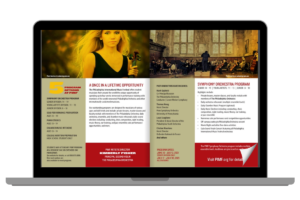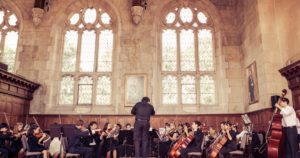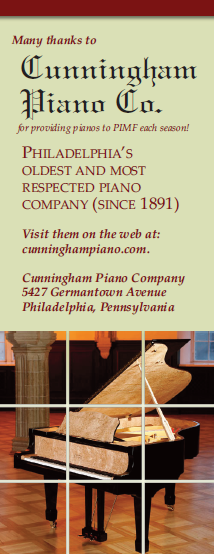The Journey of a College Music Major – Is the Conservatory Route Best For You?
This post dabbles in tricky territory – making projections on the future in an effort to achieve an anticipated outcome. A young musician with an itch to “go for it” is up against a lot from basically middle school, and beyond! (Gotta love Buzz Lightyear) – taking auditions, participating in competitions, seeking out or, better yet, facilitating performance opportunities, and researching educational opportunities in the form of private teachers, ensemble programs, summer festivals, masterclasses, and “next steps” cough.. college.. cough..
It’s one thing to plan for a good meal at a restaurant with a good reputation.. you hear the food is good, you go check out the menu, you roll the dice on a dish that sounds good, and voila! If it was a good experience, you’re satisfied and better off for it; if it was a bad experience, you learn from it and avoid the place…
It’s another thing to commit precious years of your early adulthood and development (both musically and socially) to an institution. Keep in mind all the factors that come with this choice: the locale, the community of fellow music students, the regional musical community outside of the institution (i.e. gig opportunities, and venues for you to observe professional performances of all artistic veins) , and the general education opportunities that are available – studying abroad, minoring in literature or philosophy, participating in athletic programs, etc.
“Sooner or later you’re going to realize, just as I did, that there’s a difference between knowing the path… and walking the path.”
So where to begin?
In my experience, there is a great deal of variety to the average freshman mindset in grappling with where one is headed post-education, and that is totally ok! It is a rare breed that goes into college knowing precisely what they/she/he wants out of it. [If you know, skip 6 spaces ahead to the “Choose School” step.]
As a student of music, I propose you envision your potential college experience as a balance of four elements:
- Your personal and direct technical/musical growth as an instrumentalist
- Your development of contextual musical knowledge with regards to history, theory, auxiliary skills (piano for non-piano majors, singing for non-vocalists, conducting, composing/arranging)
- Your broader education in non-musical disciplines
- Your broader development as a person(ality) w/r/t your experiences socially, culturally, and environmentally (environmentally is referencing your surroundings: the facilities you are studying at, your place of residence during your studies, and the offerings of the city.. not the trees and the birds and the squirrel and flowers etc..)
These 4 experience-elements are in a specific order for a reason.
Whereas growth in the #1 category is a tangible result built of the combination of your work in the practice room and the quality of directed instruction you receive, the growth in the #4 category (non-linear growth, so more like.. “development”) is more ambiguous in what doors it will open for you down the road and the benefit of how it will color or inform your musicianship.
It is old adage that life experience is the raw resource which one refines into musicianship.
So now that you have a lens by which to evaluate potential undergraduate institutions, let’s look at the comparative difference between the fork in the road – conservatory education or liberal arts education.
Let’s define the basic difference: a conservatory curriculum is more tailored toward specific professional development. More eggs are going in the #1 and #2 basket, and less in the #3. One could argue that less eggs are going in the #4 basket because of the intensity of the environment, but I would like to assume that you are the caliber of student who sets impeccable, individual standards for the self.. that is to say that regardless of intensity of environment, you are willing to impose the self-discipline and wherewithal to achieve an adequate practice and study schedule (work) to non-practicing time (life) balance.
A liberal arts education is going to provide a broader curriculum designed to develop your awareness and capacities in multiple disciplines. The eggs are more widely distributed between the first three baskets. Make no mistake about it! With a liberal arts education there will be nights spent cranking out Riemann sums or researching and writing overviews on the virtues and pitfalls of mid 20th century American diplomatic policy. And I will argue this: in the long run, you will be a better a musician for knowing how to do a Riemann sum. Why? Because all the knowledge you acquire throughout the varieties of your personal experience will fuel your ability to feel and think critically – fuel your ability to extract narrative, construct metaphor, and solve problems.
The kicker? You get to choose the number of eggs you have to put in baskets.
And the trick? Those eggs are made out of core tenets of virtue: self discipline, hard work, goal setting, and realistic assessment.
So as you begin to weigh the benefits between the two environments – conservatory or liberal arts – consider this: any conservatory student could pick up a copy of Cosmos by Carl Sagan or Howard Zinn’s A People’s History… and any liberal arts student can commit to the development of a personal standard of excellence fed by hours in the practice room and consumption of any and all available resources for developing the chops..
Choosing the next step after high school is a huge challenge! It also must be recognized that there are so many other factors outside of anticipating the benefits of an environment. You have to balance financial considerations with the emotional challenges of being away from your home. Everyone has an individual story.
The silver lining to this challenge? No matter what you choose, the experience is going to be what you are willing to make of it. With concerted effort and willingness to meet adversity with ingenuity and hard work, you not only improve conditions for yourself, but elevate the experience of your peers – a gift which pays unknowable dividends as your career develops and your educators and peers become your professional colleagues.





